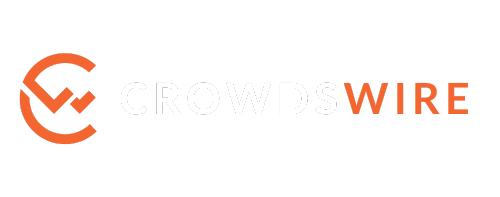Elevate Your Brand's Online Presence
Social Media & Search Engine Marketing
Achieve High ROI with Social Media & SEM
Social media is the beating heart of your brand. It’s where connections are forged, loyalty is built, and your story is told in real-time. But it’s not just about being seen; it’s about being remembered. While Search Engine Marketing (SEM) drives targeted traffic and immediate action, social media nurtures relationships that turn followers into lifelong customers.
The power lies in their synergy. SEM captures intent when users are ready to buy, while social media shapes that intent by keeping your brand front and center. Together, they create a seamless journey from awareness to conversion, ensuring your brand dominates the digital space.
Let’s harness the full power of both to make your brand unforgettable.
SEO v/s SEM
There are plenty of opinions out there about whether search engine marketing (SEM) or search engine optimization (SEO) are right for your business. But what really matters is what’s right for your unique situation, goals, and business model. Generally speaking both SEO and SEM are integral to the success of a business but follow a slightly different strategy. SEO is a long term approach to ranking well on Google whereas SEM is a way to get on top of the results immediately, but at a cost.
What is SEO? Search engine optimization (SEO) targets free organic traffic from SERPS, or search engine result pages. In other words, it’s optimizing content so that it appears higher in SERPS. An example of an effective keyword would be best ice cream or New York city hotels What is SEO? Both terms are relatively easy to rank for, but only one can help you attract more customers. The goal is to ensure that when people search for best ice cream or new York city hotel you show up first in SERPs – and not just once – but consistently throughout their browsing session.
Search engine result pages (SERPs) are the outcome of a search query on a search engine, which was matching the keywords on some webpages, and the algorithms presented these pages in the order of assessed relevance. These results cater to the evergreen traffic from top of the funnel. But the bottom of the funnel also establishes contact with hot prospects when they visit these webpages and are ready to buy the instant a relevant ad is displayed.
Search engine marketing (SEM) and search engine optimization (SEO) are both legitimate ways to optimize your web presence, but which one of these digital marketing strategies should you choose? The answer will be different for every business, so here’s what you need to know about each one before making your final decision.
So all in all, search engine marketing (SEM) drives traffic to your website from the search engines, whereas search engine optimization (SEO) optimizes your site to show up higher in the search results. Ideally, you would use both types of marketing together, but there are times when one or the other might be more appropriate for your business.
What is SEM Search Engine Marketing?
There are plenty of opinions out there about whether search engine marketing (SEM) or search engine optimization (SEO) are right for your business. But what really matters is what’s right for your unique situation, goals, and business model. Generally speaking both SEO and SEM are integral to the success of a business but follow a slightly different strategy. SEO is a long term approach to ranking well on Google whereas SEM is a way to get on top of the results immediately, but at a cost.
What is SEO? Search engine optimization (SEO) targets free organic traffic from SERPS, or search engine result pages. In other words, it’s optimizing content so that it appears higher in SERPS. An example of an effective keyword would be best ice cream or New York city hotels What is SEO? Both terms are relatively easy to rank for, but only one can help you attract more customers. The goal is to ensure that when people search for best ice cream or new York city hotel you show up first in SERPs – and not just once – but consistently throughout their browsing session.
Search engine result pages (SERPs) are the outcome of a search query on a search engine, which was matching the keywords on some webpages, and the algorithms presented these pages in the order of assessed relevance. These results cater to the evergreen traffic from top of the funnel. But the bottom of the funnel also establishes contact with hot prospects when they visit these webpages and are ready to buy the instant a relevant ad is displayed.
Search engine marketing (SEM) and search engine optimization (SEO) are both legitimate ways to optimize your web presence, but which one of these digital marketing strategies should you choose? The answer will be different for every business, so here’s what you need to know about each one before making your final decision.
So all in all, search engine marketing (SEM) drives traffic to your website from the search engines, whereas search engine optimization (SEO) optimizes your site to show up higher in the search results. Ideally, you would use both types of marketing together, but there are times when one or the other might be more appropriate for your business.
Social Media & SEM Services
In the digital landscape, a strong online presence is non-negotiable, and that’s where Social Media Marketing (SMM) and Search Engine Marketing (SEM) come together. With our Social Media Marketing services, we don’t just create content—we craft compelling stories. From dynamic content creation and striking design to targeted paid ads and community management, we ensure your brand engages and converts across all platforms.
But to truly dominate, you need more. Search Engine Marketing (SEM) plays a crucial role by boosting your website’s rankings through both organic search and paid advertising on platforms like Google Ads, Bing Ads, and Yahoo Gemini. By combining SEM and SMM, we get your brand in front of potential customers precisely when they’re searching for what you offer.
Leveraging local search engine marketing expertise, we tailor strategies to exploit user behavior in specific areas, ensuring your business stays ahead of the competition. Whether it’s crafting search-friendly content or managing vibrant social communities, we align every effort to deliver real, measurable growth.
Let’s make your brand the first choice online, every time.


